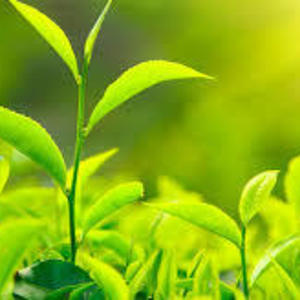-
 金良-Supply Chain 马 4/27/2024 7:50 PMTry to take bicycles and public transportation instead of cars because it will make less CO2.
金良-Supply Chain 马 4/27/2024 7:50 PMTry to take bicycles and public transportation instead of cars because it will make less CO2.
Try to use cloth bags and baskets instead of plastic bags.
Try to take the water glass instead of buying the drink.
Holly Curry
"Reducing my footprint one step at a time"
POINTS TOTAL
- 0 TODAY
- 0 THIS WEEK
- 779 TOTAL
participant impact
-
UP TO8.3poundsfood waste prevented
-
UP TO17pounds of CO2have been saved
-
UP TO1.0Carbon FootprintCalculated
-
UP TO19pieces of litterpicked up
-
UP TO81plastic strawsnot sent to the landfill
-
UP TO37plastic bottlesnot sent to the landfill
-
UP TO1.0water footprintcalculated
-
UP TO416gallons of waterhave been saved
-
UP TO1.0advocacy actioncompleted
-
UP TO1.0community eventhosted or attended
-
UP TO3.0hoursvolunteered
-
UP TO120minutesspent learning
Holly's actions
Land + Forests
Explore My Area
When we explore natural spaces around us, our connections with them change. I will spend 30 minutes exploring a new area around my neighborhood, office, or campus (e.g., park, water body, nearby trail, community garden, green space, etc.).
Action Track: Community
Join a community event.
Join partners at By Faith Farm for 4 hours to help harvest lettuce and plant for this seasons crop of vegetables to donate.
Climate + Air
Calculate My Carbon Impact
Carbon emissions can show up in many surprising ways in our life. I will calculate the carbon emissions associated with my household and consider how lifestyle changes could reduce the carbon footprint and impacts on the environment.
Climate + Air
Online Energy Audit
Energy use and waste is often invisible. I will complete an online energy audit of my home, office, or dorm room and identify my next steps for saving energy.
Climate + Air
Declutter My Home Without the Landfill
Each day, I will learn about responsible ways to dispose of items and de-clutter, clean, donate, repurpose or recycle unneeded items in my home to make sure that what I get rid of doesn't go into the landfill.
Freshwater + Oceans
Understand My Water Footprint
Each of us has a water footprint, directly linked to our daily activities as well as the water required in the production of things we use each day. Understanding our water use is important for a healthy planet. I will calculate my water footprint and look for a few ways I can reduce consumption or waste, then share what I learned on the feed.
Action Track: Community
Earth Day Community Event
Join forces at Lookout Mountain Conservancy to beauty grounds and prepare garden beds.
Freshwater + Oceans
Use a Reusable Water Bottle
It's estimated over a billion water bottles are thrown away each year. Even if they were recycled, that still uses energy and resources from the earth. I will use a reusable bottle and stop purchasing bottled water, saving 3 disposable plastic bottle(s) a day.
Action Track: Community
Keep My Community Clean
At times it may not feel like it's up to us to keep our community clean and healthy, but we all have a role to play. Each day I am outside, I will pick up any litter I see.
Action Track: Community
Borrow Before I Buy
Why buy something I will only use once or a few times if someone nearby has it for me to borrow, and why not share something I have that someone may only need a few times a year? To reduce my consumption and waste, I will create or support the sharing economy with friends, family, colleagues or neighbors.
Biodiversity + Wildlife
Seek Alternative Gifts and Souvenirs
When traveling, I will seek souvenirs that support local communities and do not cause harm to the environment or wildlife.
Climate + Air
Weekly Meal Planning
One third of all food produced worldwide is wasted, and so is the energy it takes to produce and transport that food. I will reduce food waste and save money by planning a weekly menu, only buying the ingredients I need and eating what I planned each day.
Freshwater + Oceans
Say No to Plastic Straws
An estimated 71% of seabirds and 30% of turtles have been found with plastics in their stomachs. When marine wildlife ingest plastic, they have a 50% mortality rate. By asking for no straw when placing a drink order, I will keep 3 plastic straw(s) of out of the ocean each day.
Biodiversity + Wildlife
Save the Bees
Bees are vital to ecosystems. To help save the bees, I will learn which local flowers provide nectar and plant them in my backyard or in a pot on my balcony.
Action Track: Community
Join a Cleanup Effort
I will organize or participate in a trash pickup at a local river, beach, or natural body of water.
Action Track: Community
Volunteer in my Community
I will volunteer 4 hours in my community.
Participant Feed
-
REFLECTION QUESTIONClimate + AirWhere in your life do you emit the most carbon? What change are you willing to make in your daily life to reduce this output?
 Holly Curry 4/27/2024 5:22 PM
Holly Curry 4/27/2024 5:22 PM -
 Holly Curry 4/26/2024 6:47 PM6th Annual Earth Day event at Lookout Mountain Conservancy. This year we prepared beds for their community garden.
Holly Curry 4/26/2024 6:47 PM6th Annual Earth Day event at Lookout Mountain Conservancy. This year we prepared beds for their community garden.-
 Adeze Chukwu 4/26/2024 6:53 PM
Adeze Chukwu 4/26/2024 6:53 PM
-
-
REFLECTION QUESTIONFreshwater + OceansWhat did you learn about your water footprint and what are you going to do to reduce and be aware of the water you use?
-
REFLECTION QUESTIONClimate + AirHow did it feel to intentionally declutter with putting things into the landfill? What did you learn along the way about yourself and our consumer and waste systems?
 Holly Curry 4/23/2024 5:51 PMIn my county we have a county help center where the community can drop off donations. Donations are then put up for sale. All proceeds are then available for families in need via grants. The help center also offers the ability to shop the location in the event of emergency due to fire or other disasters. This week we were able to donate 6 boxes of clothing and household items.
Holly Curry 4/23/2024 5:51 PMIn my county we have a county help center where the community can drop off donations. Donations are then put up for sale. All proceeds are then available for families in need via grants. The help center also offers the ability to shop the location in the event of emergency due to fire or other disasters. This week we were able to donate 6 boxes of clothing and household items. -
REFLECTION QUESTIONBiodiversity + WildlifeWhat did you plant for bees in your area? Please consider uploading a photo!
 Holly Curry 4/20/2024 3:17 PMI will be planting the following this season to support pollination: bee balm, asters, daisies and sunflowers. We already have hosta doing work :) Also learned bees have color vision and they flock to yellow, purple, blue, and white flowers.
Holly Curry 4/20/2024 3:17 PMI will be planting the following this season to support pollination: bee balm, asters, daisies and sunflowers. We already have hosta doing work :) Also learned bees have color vision and they flock to yellow, purple, blue, and white flowers. -
 Holly Curry 4/19/2024 6:26 PMSecond-hand clothing sales can contribute to reducing negative environmental impacts by promoting clothing reuse and extending the lifespan of garments. Studies have shown that second-hand clothing markets have saved significant amounts of CO2 emissions, water consumption, and energy consumption.
Holly Curry 4/19/2024 6:26 PMSecond-hand clothing sales can contribute to reducing negative environmental impacts by promoting clothing reuse and extending the lifespan of garments. Studies have shown that second-hand clothing markets have saved significant amounts of CO2 emissions, water consumption, and energy consumption.
Today I dropped off the first round of 30 articles of clothing to a second hand store in Nashville to receive a $250 store credit to purchase other items! 🛍️
Round 2 coming soon!
-
 Shelley Pinckney 4/19/2024 9:00 PMI have 3 bags of clothing ready to be donated to our second-hand store in Pennsylvania. It's great to be know that someone will be appreciate have "new" clothes/shoes and helping our planet at the same time. It also feels good to declutter.
Shelley Pinckney 4/19/2024 9:00 PMI have 3 bags of clothing ready to be donated to our second-hand store in Pennsylvania. It's great to be know that someone will be appreciate have "new" clothes/shoes and helping our planet at the same time. It also feels good to declutter.
-
-
 Holly Curry 4/17/2024 3:08 PMParticipated with fellow partners at By Faith Farm for our 2nd annual harvest and plant for this season’s crop.
Holly Curry 4/17/2024 3:08 PMParticipated with fellow partners at By Faith Farm for our 2nd annual harvest and plant for this season’s crop.-
 Benjamin Valic 4/17/2024 3:37 PM
Benjamin Valic 4/17/2024 3:37 PM
-
-
 Holly Curry 4/15/2024 6:25 PM
Holly Curry 4/15/2024 6:25 PM-
 Suraj Gaurkar 4/15/2024 6:36 PM
Suraj Gaurkar 4/15/2024 6:36 PM
-
-
 Holly Curry 4/07/2024 7:53 AMStarbucks Alumni + Partner Event Nashville 4/4/24
Holly Curry 4/07/2024 7:53 AMStarbucks Alumni + Partner Event Nashville 4/4/24
-
 Holly Curry 4/07/2024 7:50 AM
Holly Curry 4/07/2024 7:50 AM-
 Tesh Burke 4/08/2024 5:26 AM
Tesh Burke 4/08/2024 5:26 AM
-












